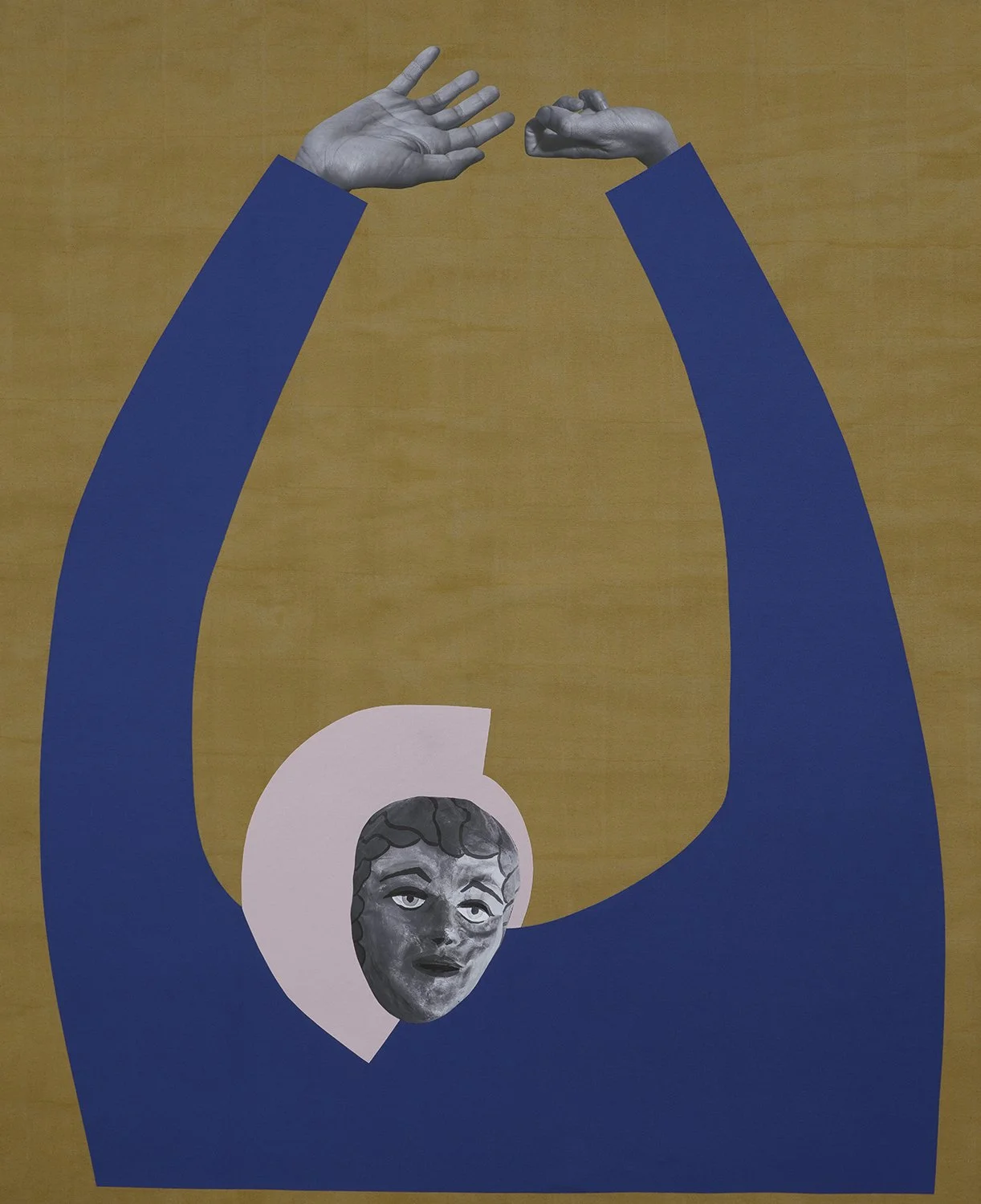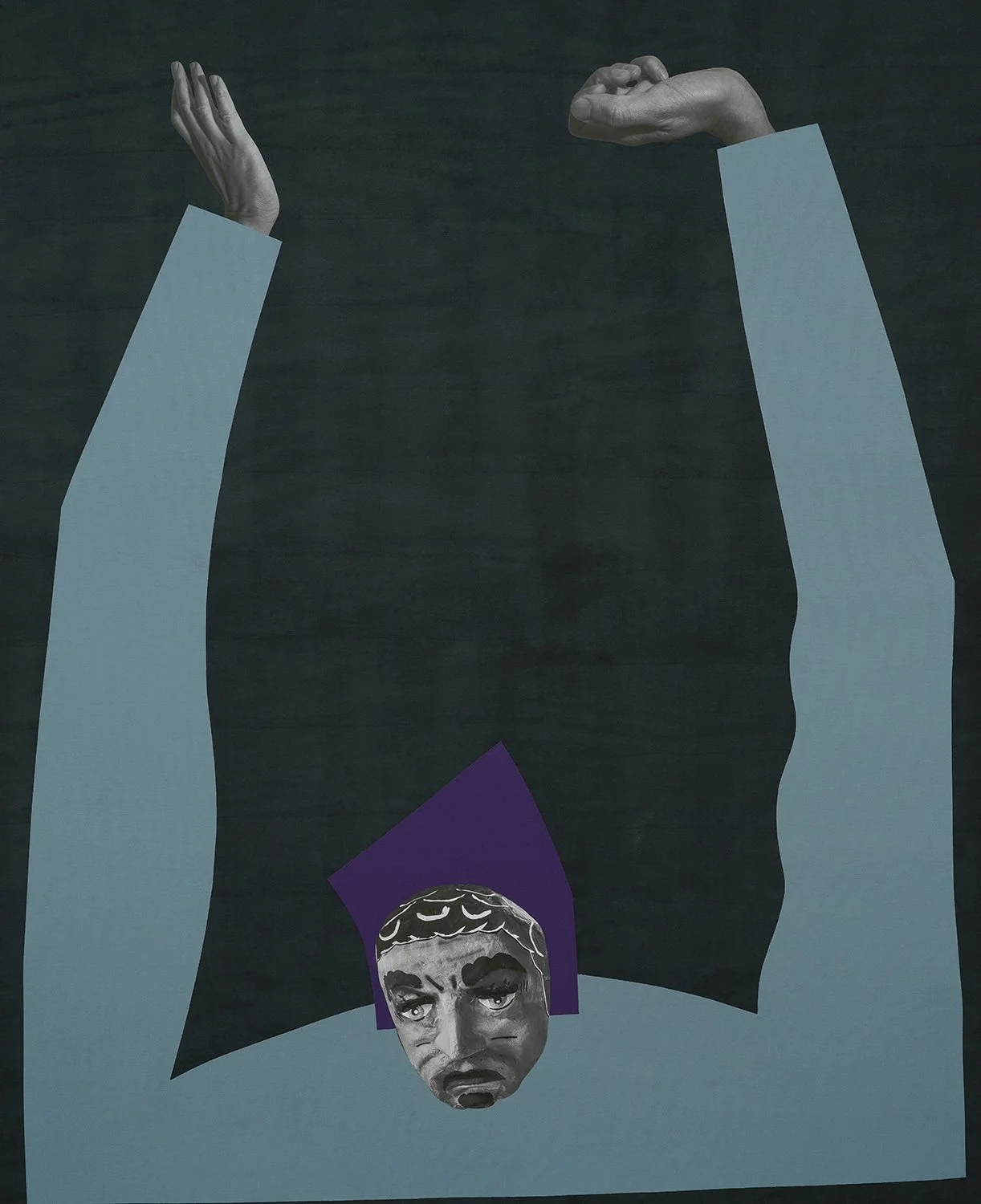Ni Los Perros Que Jamás Me Olvidaron, Ni Los Caballos, Ni Los Abrazos Que Me Dan Mis Hermanos
[Neither the Dogs that Never Forgot me, Nor the Horses, Nor the Hugs from my Siblings ]
Acrylic on raw canvas, fabric, iron-on transfers
Series of 43
45.25 x 55.5 inches / 111.75 x 137.15 cm
2023 - 2024
Ni Los Perros Que Jamás Me Olvidaron, Ni Los Caballos, Ni Los Abrazos Que Me Dan Mis Hermanos (Neither the dogs that never forgot me, nor the horses, nor the hugs from my siblings) unfolds as a collection of mixed-media paintings, drawing inspiration from the profound words and enduring legacy of Facundo Cabral, the Argentine singer, songwriter, and philosopher. Cabral's resolute activism challenged military dictatorships in Latin America, infusing his music with a blend of mysticism, philosophy, and spirituality intertwined with calls for social justice and equality.
Comprising fifty individual compositions, the collection intricately weaves a narrative featuring forty-three characters with hands raised in a gesture of surrender and powerlessness. This symbolic portrayal directly references mass kidnappings and unresolved events that continues to resonate in our times. Additionally, the inclusion of two military figures, three dogs, and two horses serves as a visual representation of the power dynamics at play during this harrowing incidents.
Executed on stained raw canvas through a fusion of fabric and print transfers, each colorful composition serves as an exploration of the devastating impact of systemic oppression and injustice. The amalgamation of these elements culminates in a haunting arrest scene when the fifty compositions are installed together—a powerful visual metaphor shedding light on unjustified detentions, the disappearance of individuals due to migration or dissent, and the harsh realities faced by many minority groups.
The choice to present these paintings as an installation, rather than individual works, amplifies their collective impact, immersing viewers in the visceral experience of the depicted events. The project's title, influenced by Cabral's monologue on nostalgia, delves into the personal emotions and experiences of displacement, longing for home, and the profound impact of detention and hostility. The varied and prominent use of color subtly alludes to flags from numerous nationalities without specifically pointing to individual ones, emphasizing the universal magnitude and global prevalence of such tragedies. Through this poignant work, Peñafiel not only raises awareness of migration and incarceration issues but also underscores the imperative of collective action in addressing these pressing societal challenges.
Ni los Perros que Jamas me Olvidaron…, Coined in the South, The Mint Museum, Charlotte, NC, USA - 2024








